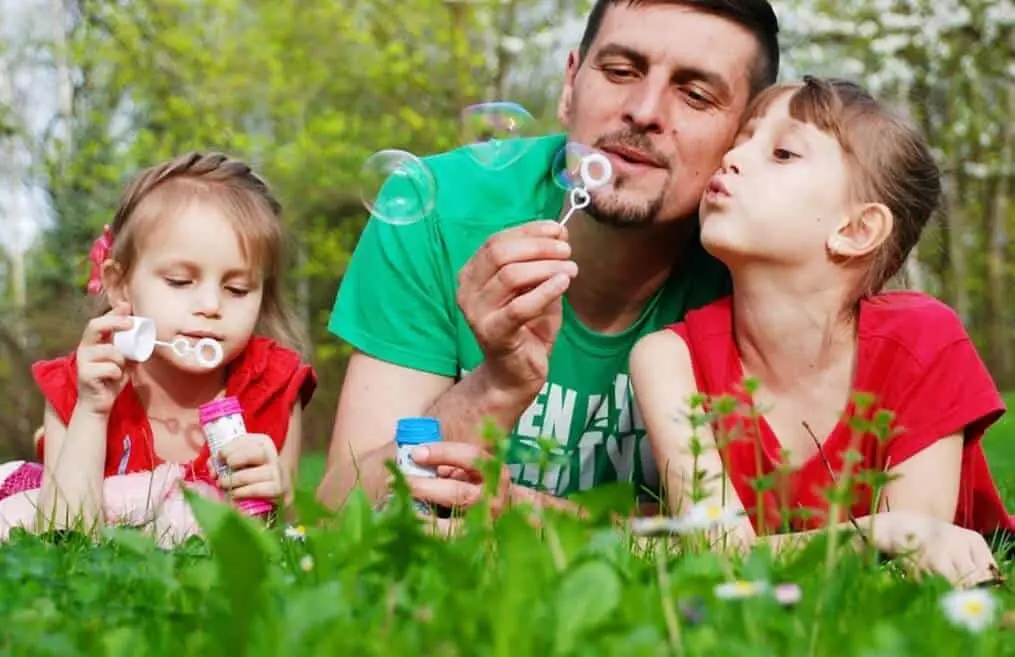If the term “democratic” makes you think of spoilt brats who do whatever they want, you are not alone. Democracy in terms of parenting isn’t really a concept that sits well with many parents, especially those raised in dictator-type homes where rules are obeyed because someone said so.
However, having a bunch of out-of-control kids is far from what democratic parenting is about. Think of it like a democratic society where citizens have rights and freedoms but respect constituted authority and follow laid down rules.
If you’re considering this parenting style, this post will discuss 6 concrete reasons to adopt it.
What Is Democratic Parenting?
Democratic parenting is a parenting style where parents and children are considered equals and treated that way. In this type of parenting, parents encourage children to make positive choices, but children have the liberty to make their own decisions.
The democratic style of parenting should not be mistaken for the uninvolved parenting style, where parents barely concern themselves with the needs of their children. While children enjoy mutual respect and independence in a democratic home, they must accept the consequences of their decisions, no matter how unpleasant.
However, consequences for unhelpful choices must not involve physical pain or harm in a democratic home. The idea of consequences is to help children make responsible choices, not to hurt them.
The concept behind this parenting style rests on the following key principles:
- Equality, positivity, and warmth
- Love, motivation, and understanding
- Rules, obedience, discipline, and rewards
- Encouragement, dignity, and respect
Main Characteristics and Features of Democratic Parenting

Raising well-rounded adolescents or teenagers requires a parenting style that balances independence and responsibility. This is where the democratic style of parenting has the edge over other parenting styles. Here are its major characteristics.
Clear Rules and Boundaries
Permissiveness is not one of the characteristics of the democratic style of parenting. This is why parents must be clear about rules and boundaries and also ensure consistency in implementation.
If you choose this parenting style, consider what values are important to your family when setting rules. Let kids know what’s negotiable and non-negotiable. This way, your children are not in the dark about acceptable behavior and what to avoid.
Freedom to Make Decisions
Setting clear rules is not the same as dictating to your child. In a democratic home, children are at liberty to have their preferences and express them, as well as make their choices and decision (when appropriate).
Also, children are allowed to contribute ideas, especially on issues involving them. For example, asking what matters to them when setting boundaries.
Mutual Respect
Parent-child interactions in democratic homes are characterized by mutual respect, with parents treating children with the respect they deserve and children learning to reciprocate the same.
There is no room for bossing children around. Instead, kids are encouraged to participate in age-appropriate activities.
Accountability and Consequences
Although children are encouraged to make their decisions, they are held accountable for their behaviors. This is why parents must help them understand the outcomes or consequences of their choices.
Democratic parents don’t use harsh punishment when kids behave badly. Instead of controlling behavior using power-assertive discipline, parents use natural consequences and inductive discipline for behavior modification.
Natural consequences are the inevitable outcomes of choices. For example, having no one to play with is a natural consequence of being mean to friends. Or catching a cold is the outcome of going outside without a jacket in cold weather.
On the other hand, inductive discipline involves making the child think about how their behavior can affect others and themselves. This disciplinary method usually produces better results when it comes to teaching socially-acceptable behavior.
Sensitivity to the Child’s Unique Needs
Each child is different, and parents must be sensitive to their individual needs. This requires active listening and flexibility to negotiate with your children whenever possible. This is part of being accepting, warm, and responsive to children’s physical, emotional and developmental needs.
Firmness is in order when dealing with crucial issues involving safety and health. However, it is okay to make compromises (within reason) on other less important issues.
High Expectations
Democratic parents monitor their children’s behavior, ensuring they do the right thing. Of course, this comes after parents have set clear rules and expectations for their children.
A Quick Word About What Democratic Parenting Is Not
It’s easy to misunderstand this parenting style for something it is not. To be clear, democratic parents do not encourage children to do whatever they want. Kids can’t be defiant to parents’ instructions, nor are they allowed to do what adults do.
Indeed, children enjoy the freedom to make choices, but that’s not to say parents do not explain the outcomes of good and bad choices.
In other words, parents do all they can to protect children from wrong choices by showing them the unpleasant results associated with poor decisions, as well as the rewards that come with doing the right thing.
All of this happens in a positive and supportive atmosphere that makes children feel respected. With the right guidance, you are less likely to have out-of-control kids in a democratic home because your children understand the consequences of bad choices.
6 Reasons to Adopt Democratic Parenting

Some parents may not like the idea of raising children who may question their logic and actions, particularly if the kids are argumentative. Besides, parents who prefer the “my house, my rules” type of parenting may be reluctant to adopt the democratic style of parenting.
That said, children raised in democratic homes usually grow up to be responsible, confident, and well-mannered young adults. Undoubtedly, getting this type of result requires parents to be patient and consistent, but the outcome is usually worth all the effort.
Understandably, you may not be eager to adopt and implement this parenting style. But you may have a change of heart after considering the following advantages.
1. Encourages Excellent Social Skills
Raising kids in democratic homes provides the supportive environment necessary for learning and developing social skills and moral values. Children grow up learning to respect the rights of others while demonstrating self-confidence.
In a 2016 study that examined the effect of parenting styles on social skills, researchers found that children aged 5 to 6 raised in democratic homes are more likely to have high interpersonal skills, excellent verbal expression and listening skills, as well as the ability to handle peer pressure.
2. Helps With Emotional Regulation
In democratic households, children are treated with love, warmth, and respect. By creating a positive atmosphere, parents encourage their kids to express difficult emotions in positive ways instead of suppressing them. Over time, children will develop self-control and anger management skills.
3. Promotes Self-Reliance and Self-Efficacy
Self-reliance and self-efficacy are two important qualities children learn in a democratic home. That’s because the parenting style encourages kids to make their own decisions (of course, with proper guidance from parents).
To foster these qualities, children are rewarded for completing age-appropriate tasks and are allowed to face the consequences of poor choices.
Besides improving self-efficacy and self-reliance, children raised in such a supportive and motivating atmosphere are more likely to develop the following positive traits:
- Capable of establishing clear targets
- Better at completing tasks
- Easily adapt to change and more likely to come to terms with unpleasant situations
4. Encourages Independent Reasoning and Improves Sound Decision-Making Skills
Parents and children are involved in decision-making in a democratic home, and this builds decision-making skills in kids over time. With constant practice, children will develop better judgment and the ability to think on their feet.
5. Boosts Self-Esteem in Children
Being able to make decisions, establish targets, and complete tasks on their own at an early age helps build a healthy sense of self-esteem in children. This allows kids to develop a can-do attitude to take on tasks and confidently deal with problems instead of complaining, giving up, or relying on mum and dad to figure things out for them.
6. Strengthens Parent-Child Bond
Communicating ideas and feelings, as well as active listening, are encouraged in democratic homes. Kids who grow up in a democratic household knowing they can express their feelings at home and confide in their parents without the fear of being put down or judged are more likely to develop trust in their parents, and it is a more positive relationship. This type of open and honest communication strengthens the parent-child bond.
Final Thoughts
The democratic parenting style has a long list of advantages, but the style won’t work for every household. In fact, there is no one-size-fits-all when it comes to parenting styles.
You should consider your children’s age and developmental stage before adopting any style of parenting. Democratic parenting theories are more effective for families with younger children but not toddlers because the latter may be too small to understand the consequence of their choice.
Finally, remember that the right parenting style for you and your family isn’t what’s popular. Good parenting resonates with your family values.




